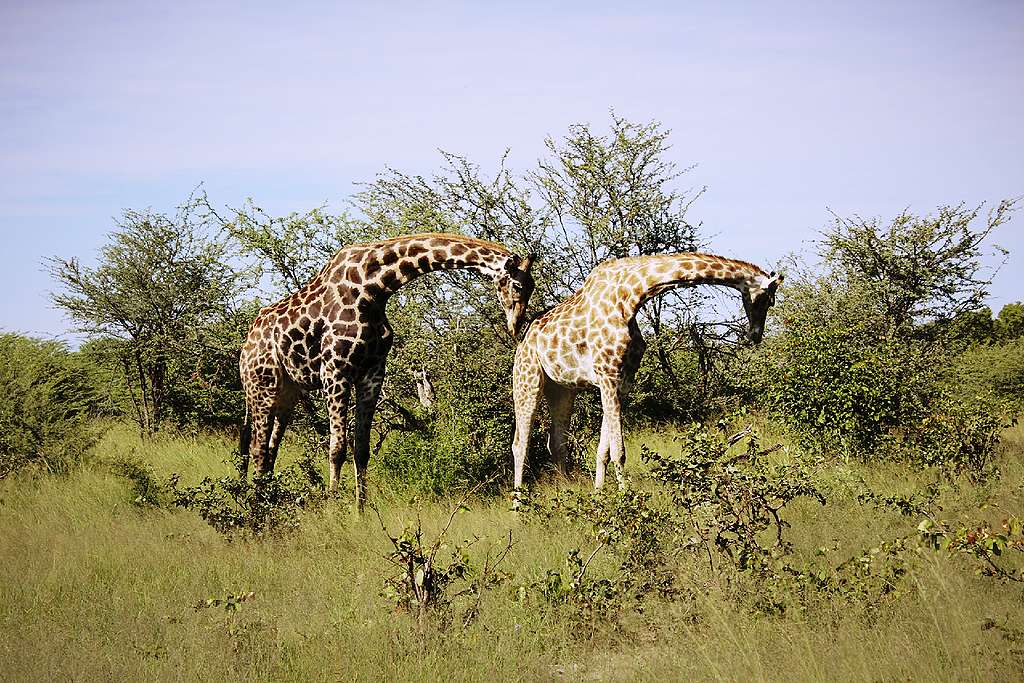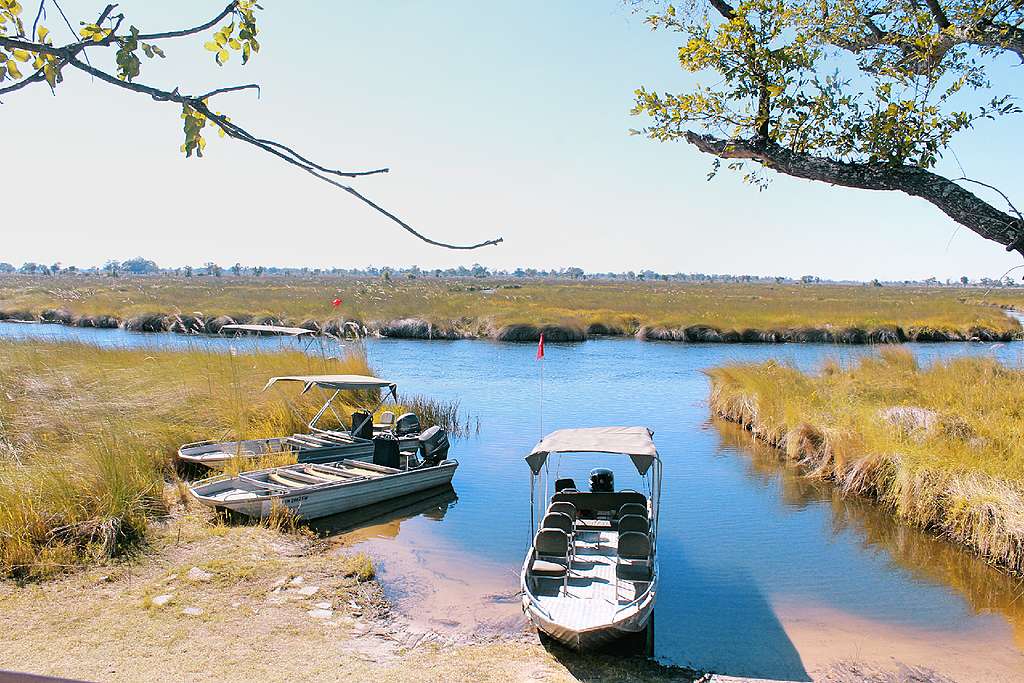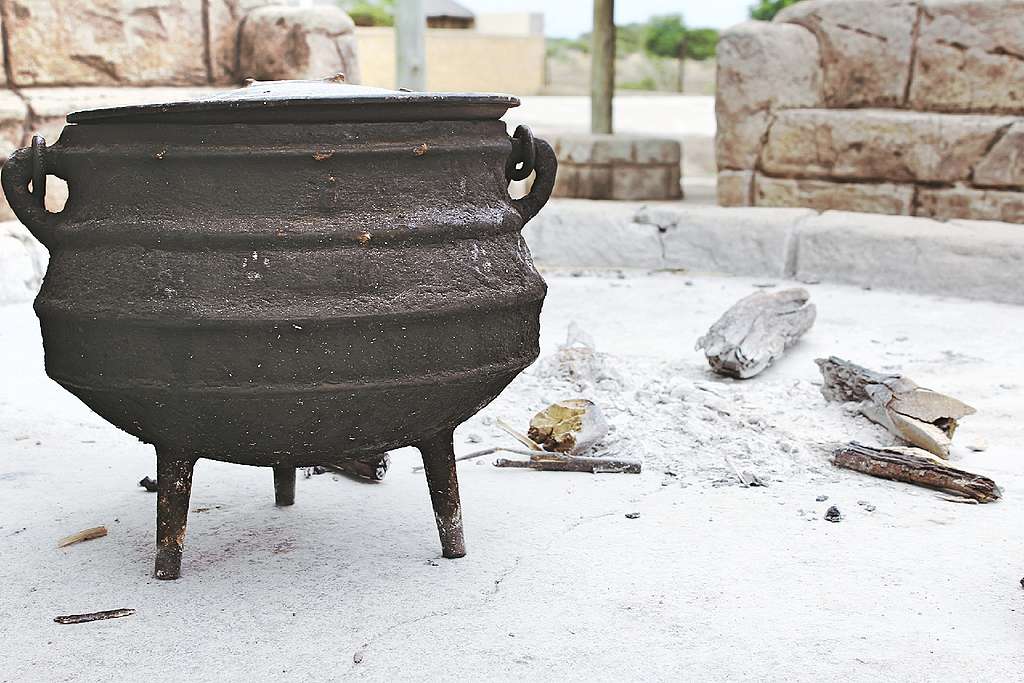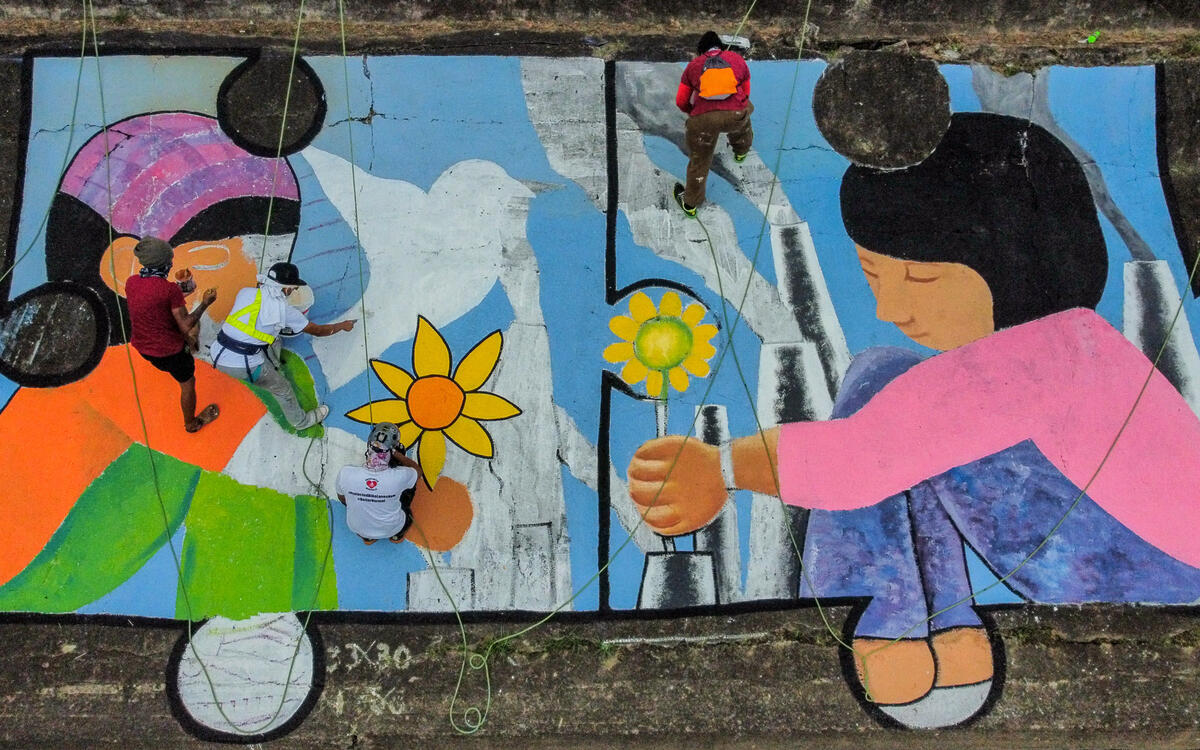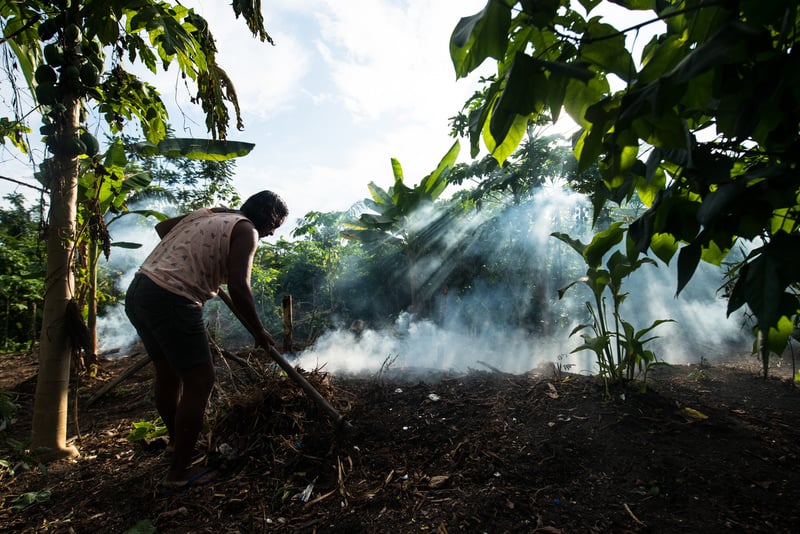We are in a homestead. Specifically, we are in a typical round kraal fenced with what looks like dry candle pod acacia tree branches. The air around us is thick with the fine dust of pelleted manure crunching beneath our feet.
“Be careful, they kick, these ones,” says Tlamelo Mothudi, a guest at Happy Soul Adventures. She is cautioning her little girl, and laughs when the child screams ‘don’t hit me, don’t hit me’, while moving through the maze of bleating goats themselves galloping all over the kraal in an effort to evade human contact. Above, a towering leafy tree that shelters the kraal prevents us from seeing the setting sun.
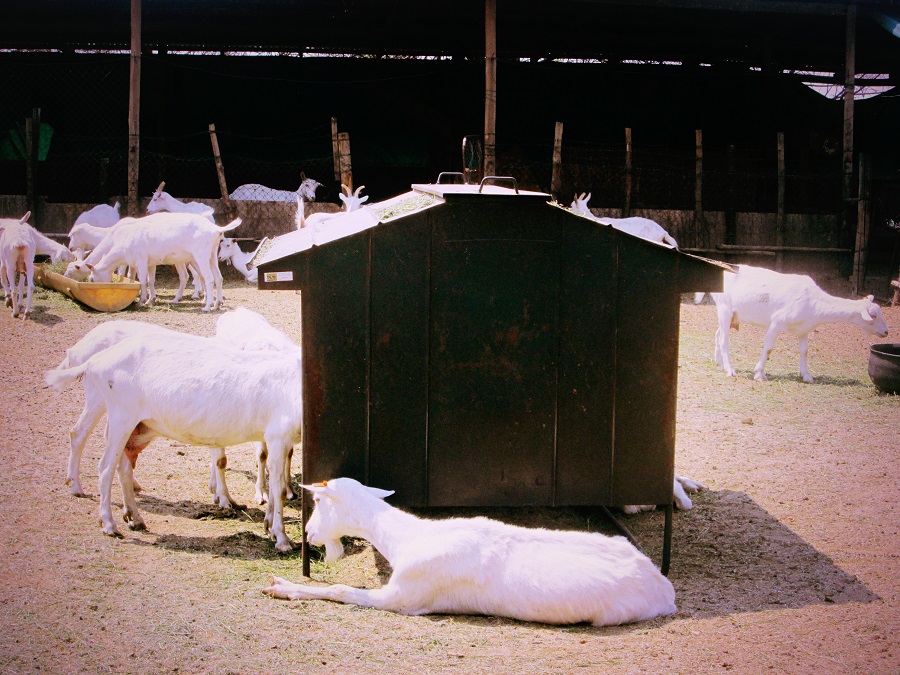
“This one is full of milk,” one of the women we are with shouts above the din of the clinkering bells tied around the goats’ necks. “You are lucky we found one you can milk, the best time to do this is early morning before their little ones suckle,” she says as we all gather beside her and watch as she lightly pinches the goat’s udder, coercing it to let down its
precious produce.
She demonstrates. Her hands are swift, yet gentle. Her lips seem to be moving to their rhythm as she gives Mothudi milking tips. Once convinced that Mothudi can emulate her, she hands her a metal cup. Smiling Mothudi slouches, holding on to the cup, she taps the udder and pulls the teat expectantly.
Fifteen minutes later, we are back at Happy Soul Adventures’ Ziwaphi Guest House where Mothudi and her daughter are booked for two more nights. With a traditional thatch roof, the three bedroomed brick house boasts an English cottage style décor that reminds me of Pinterest. While standing on the veranda, I quiz Mothudi on the experience she has just had.
“It was quite exciting. A little nerve wrecking because I thought I was going to get kicked in the face, but exciting nonetheless,” she says beaming.
If there is one thing Mothudi will take back to South Africa, where she is based, she says it would be the actual feel of a goat’s teat between her fingers. Happy Soul Adventures is a complete deviation from the norm. For decades now, Botswana has been popular for its nature based tourism—with principal tourist attractions being game reserves, hunting and photographic safaris. But given the zone of uncertainty that tourism operators find themselves working in because of climate change, when Cynthia Mothelesi decided to venture into the tourism business three years ago, she tells me she had to think outside the box.
Over the last five years, the effects of climate change on the tourism industry have been undeniably and increasingly evident. For one, Botswana’s Okavango Delta, which is the largest inland delta in the world, made history last year by partially drying up. Rivers and lakes that depended on the delta, such as the Thamalakane River and the Lake Ngami, consequently dried up too, leading to the loss of hippopotami, fish, crocodiles and other species that constitute the natural habitat and ecosystem. Because of all this, some tourism operators could not sell their usual packages such as boat cruises. However compared to the agricultural sector, some may say the tourism industry has had it easy. To date, cattle farmers across the country have lost their main source of livelihood to limited rainfall, incessant heatwaves and lack of grazing, while crop farmers harvest little to nothing, hence some of them have since abandoned agriculture, resorting to government safety nets for survival.
For Cynthia Mothelesi, surviving therefore meant starting a tourism business model that would withstand the effects of climate change while contributing less to global warming and avoiding activities that threaten environmental conservation. By using bicycles to give her customers village tours, she evades emitting greenhouse gases. She is aware that the tourism value chain is worsening the disaster of climate change, so she is doing all she can to ensure
her business is climate friendly.
Because of her belief that happiness comes in so many facets, Mothelesi wanted tourists to come to Africa not just for safari, but to experience Africa through the eyes of the locals. “Africa is perceived as a very poor continent with a lot of challenges, but despite the negatives, Africans actually live a very happy and healthy life. Which is what I wanted to showcase through the services I offer here in Mogobane Village,” she says. Mothelesi’s business is flourishing. She keeps receiving reservations from tourists who want to indulge in her innovative rural village tourism experiences, but her Ziwaphi guest house is often fully booked.
“If only they could book for their holidays well on time they would avoid getting disappointed,” Mothelesi urges wistfully. But what truly occupies her business mind is the ongoing expansion. She is set to take over a lodge in Lobatse, a place located a few kilometres away from her current base in Mogobane village. This is because she needs more rooms to accommodate her growing number of visitors from countries like the United States, Sweden, Netherlands, South Africa, and Mauritius. Her customers want to experience milking a goat, building a mud hut, ploughing a field, cycling around the village, and cooking traditional dishes among other endless joys on Mothelesi’s list that also attracts domestic tourists.
A game changer as she may seemingly be, the COVID-19 pandemic now adds an unexpected threat to her business. But with the Tourism Task Force for Africa (TTFA) which was established by the African Tourism Board on March 20, 2020 to go all out against the deadly threat which is destroying the continent’s travel and tourism industry, there may be hope. ATB’s message so far has been ‘stay home and allow tourism to prosper later’. The fact that Mothelesi actually resides on her business premises warms up my heart as I know the lodge will not gather dust. Having the place to herself for a little while may even give her ideas that will make Ziwaphi even more homely for her customers post COVID-19.
“Do you cycle?” Mothelesi smiles, and lends me a blue bicycle as soon as she gets my confirmation. Riding a pink one, she leads the way to the Mogobane Dam; which stretches out a stone throw from her guest house.

